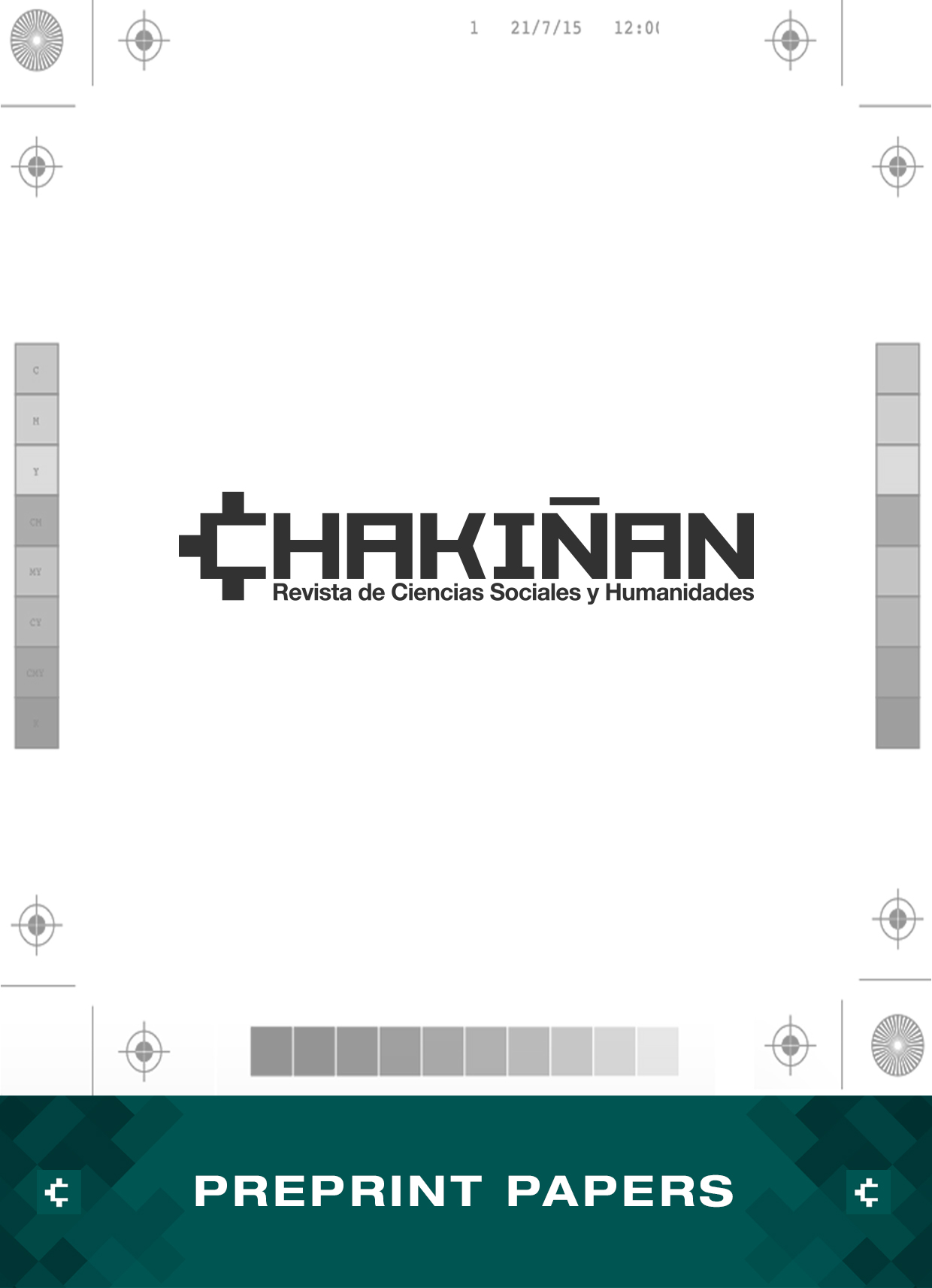READING COMPREHENSION IN THE PROCESS OF LEARNING MATHEMATICS
Main Article Content
Abstract
Reading comprehension is considered a key element in developing critical skills in students since it facilitates the analysis and interpretation of textual content and strengthens logical and critical reasoning. The research determined the relationship between reading comprehension and mathematics learning, was framed in the positivist paradigm, and developed through a descriptive, correlational, and field quantitative methodology. Two instruments were used for data collection: a mathematical knowledge test adapted from the ninth-grade book of General Basic Education, unit 3 of algebra and functions curricular block, and a questionnaire designed to determine reading comprehension. The population consisted of students from the upper sublevel of the Pacific Ocean School, selected through a non-probabilistic convenience sampling, with a sample size of 20 participants. The results revealed a significant positive correlation of 0.921 between reading comprehension and mathematics learning, which led to the conclusion that the development of reading skills directly and significantly impacts academic performance in this area.
Downloads
Article Details
Conference Proceedings Volume
Section

This work is licensed under a Creative Commons Attribution-NonCommercial 4.0 International License.
Responsibility of the authors:
The authors are responsible for the ideas and data collected in the manuscripts. They are additionally accountable for the fidelity of the information, the correction of the citations, the right to publish any material included in the text, and the presentation of the manuscript in the format required by the Journal (WORD template). A manuscript forwarded to CHAKIÑAN must not have been published before, nor must it have been submitted to another means of publication.
Copyright:
Published articles do not necessarily compromise the viewpoint of the CHAKIÑAN JOURNAL. The Journal is aligned to the policy of the licence de Creative Commons Reconocimiento-No comercial 4.0 Internacional (CC BY-NC 4.0). Each author retains the right to the paper published in the Chakiñan journal.
Privacy statement
The personal data and email addresses entered in this magazine will be used exclusively for the purposes stated by the publication and will not be available for any other purpose or person.
How to Cite
Share
References
Akin, A. (2022). Is Reading Comprehension Associated With Mathematics Skills: a Meta-Analysis Research. International Online Journal of Primary Education (IOJPE), 11(1), 47-61. https://doi.org/10.55020/iojpe.1052559
Alvarado, P. (2023). Resolución de problemas matemáticos mediados por la comprensión lectora. Revista de Investigaciones de La Universidad Le Cordon Bleu, 10(1), 104-116. https://doi.org/10.36955/riulcb.2023v10n1.010
Balopiños, J., & Ucang, J. T. (2025). Students’ reading comprehension and grit in mathematics. Ignatian International Journal for Multidisciplinary Research, 3(2), 196-205. https://doi.org/10.17613/0tnvh-km456
Benavides, N., & Zambrano, J. (2023). Comprensión lectora autorregulada apoyada en tecnología en estudiantes de Educación Básica. Revista Electrónica Educare, 27(3), 1-19. https://doi.org/10.15359/ree.27-3.17221
Bustamante, G. J., & Cabrera, L. B. (2022). Factores que inciden en el rendimiento académico de los estudiantes de bachillerato en el cantón Sucúa-Ecuador. Ciencia Digital, 6(4), 97-115. https://doi.org/10.33262/cienciadigital.v6i4.2338
Carballo, O. A. (2024). Impacto de la comprensión lectora en el aprendizaje de las matemáticas. RIDE Revista Iberoamericana para la Investigación y el Desarrollo Educativo, 14(28), 656-670. https://doi.org/10.23913/ride.v14i28.1899
Gómez, K., & Reyes, D. (2022). Aprendizaje de las matemáticas: ¿qué, para qué, para quién? Propuesta Educativa, 31(58), 21-37. https://n9.cl/4ppc2
Hernández, O. (2021). Aproximación a los distintos tipos de muestreo no probabilístico que existen. Revista Cubana de Medicina General Integral, 37(3), 1-3. https://n9.cl/4m6dd
Jara, M. E., Cedillo, D. P., Guerrero, S. J., & Gómez, G. B. (2022). El uso del subrayado para la comprensión lectora en Educación Básica. Portal de La Ciencia, 2(1), 15-26. https://doi.org/10.51247/pdlc.v2i1.296
Karacaoğlu, Ö. C., & Kasap, Y. (2023). The Effect of Reading Comprehension Skills on Mathematics and Science According to PISA Data. International Journal of Educational Research Review, 8(3), 623-637. https://doi.org/10.24331/ijere.1246885
Malagón, M. E. (2024). Factores que Influyen en el bajo nivel de comprensión lectora y estrategias que se podrían aplicar para mejorar la comprensión en los estudiantes de grado 5 primaria de la institución educativa La Esmeralda del Municipio de Chivor (Boyacá, Colombia). Revista Científica Multidisciplinar Ciencia Latina Internacional, 8(4), 5798-5812. https://doi.org/10.37811/cl_rcm.v8i4.12799
Mirondo, M. E., Magno, H. J., Cacho, G., Junio, J., Siervo, R. L., & Pamilacan, J. J. (2024). Students’ skills in mathematical word problems and their reading comprehension level: Basis for intervention program (June 2023). International Journal of Science and Research Archive, 11(2), 1189-1197. https://doi.org/10.30574/ijsra.2024.11.2.0543
Molina, C. (2020). Comprensión lectora y rendimiento escolar. Revista Boletín Redipe, 9(1), 121-131. https://doi.org/10.36260/rbr.v10i9.1453
Montero, L. V., & Mahecha, J. A. (2020). Comprensión y resolución de problemas matemáticos desde la macroestructura del texto. Praxis & Saber, 11(26), 1-17. https://doi.org/10.19053/22160159.v11.n26.2020.9862
Muñoz, E., & Solís, B. (2021). Enfoque cualitativo y cuantitativo de la evaluación formativa. Revista de Ciencias Humanísticas y Sociales, 6(3), 1-11. https://n9.cl/okncjp
Nahdi, D. S., Cahyaningsih, U., Jatisunda, M. G., & Rasyid, A. (2024). Mathematics Interest and Reading Comprehension as Correlates of Elementary Students’ Mathematics Problem-Solving Skills. Edukasiana: Jurnal Inovasi Pendidikan, 3(1), 115-127. https://doi.org/10.56916/ejip.v3i1.510
Patiño, K. N., Prada, R., & Hernández, C. A. (2021). La resolución de problemas matemáticos y los factores que intervienen en su enseñanza y aprendizaje. Revista Boletín Redipe, 10(9), 459-471. https://doi.org/10.36260/rbr.v10i9.1453
Ramos, C. A. (2020). Alcances de una investigación. CienciAmérica, 9(3), 1-6. https://doi.org/10.33210/ca.v9i3.336
Sandoval, E. A. (2022). El trabajo de campo en la investigación social en tiempos de pandemia. Espacio Abierto, 31(3), 10-22. https://www.redalyc.org/articulo.oa?id=12272203001
Supontawanit, P., & Lertlit, S. (2021). Usage of reading comprehension to enhance word problem solving skills in mathematics. Journal of English Educators Society, 6(2), 260-266. https://doi.org/10.21070/jees.v6i2.1380
UNESCO. (2022). Reporte nacional de resultados de escritura: ERCE 2019; Ecuador. https://n9.cl/7wpup
UNESCO. (2023). Diagnóstico das aprendizagens na América Latina e no Caribe: o relatório PISA. https://n9.cl/f6zgm
UNESCO. (2024). Informe de seguimiento de la educación en el mundo, 2023. https://n9.cl/gl8i0


